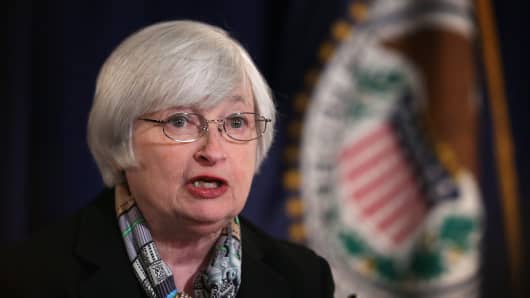
Getty Images
Federal Reserve Board Chair Janet Yellen speaks during a news conference March 19, 2014 at the Federal Reserve Board in Washington, DC.
Despite repeated denials from Alan Greenspan, aggressive monetary easing was a very big factor in the inflation of last decade's housing bubble. More recently, aggressive monetary easing has largely driven the stock market's 170-percent move over the past five years. Just as Chairman Greenspan should have incorporated housing prices in his assessment of inflation, Ben Bernanke, and now Yellen, should be incorporating financial-asset prices into their assessments of inflation.
(Read more: Traders jittery as Yellen implies an earlier rate hike)
A strategy of inflating asset prices in the hopes of restoring a healthy labor market has not worked and probably will not work. More likely, the continuation of the Fed's current path will sow the seeds of the next crisis.
Philadelphia Federal Reserve Bank President Charles Plosser's message of not promising what cannot be delivered is sound. Moreover, his subtext of the Fed not failing on its promises in order to maintain its most precious and vital asset of trust should be shouted from the hilltops.
(Read more: What's the market doing now? Click here)
Today's message from the Federal Reserve merely muddied an already opaque process. Watch for new bubbles and unintended consequences.



